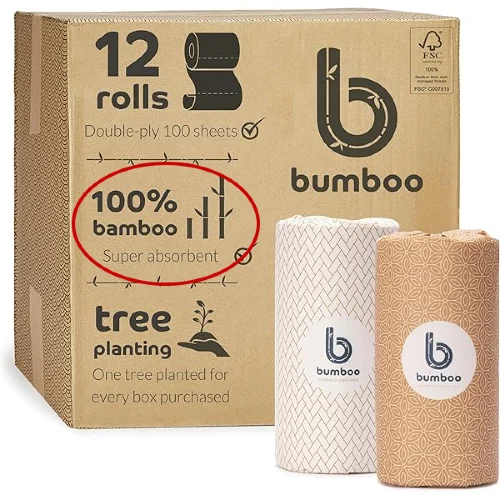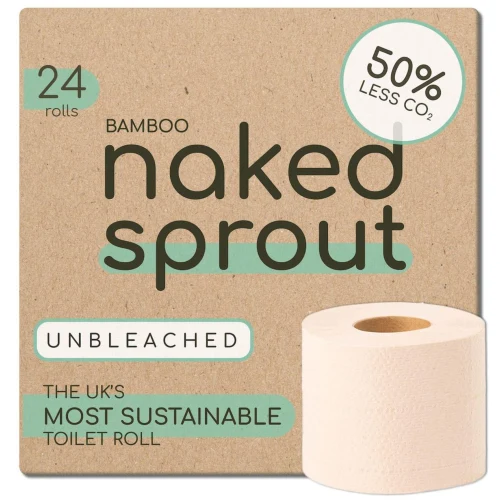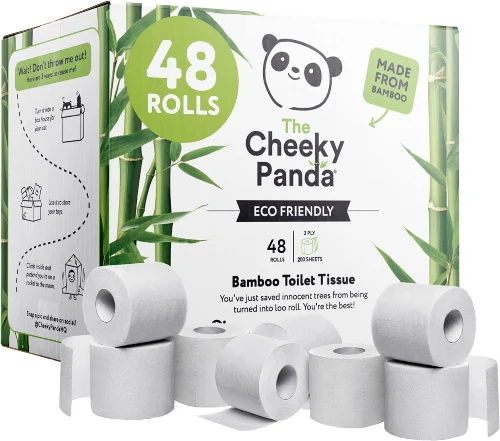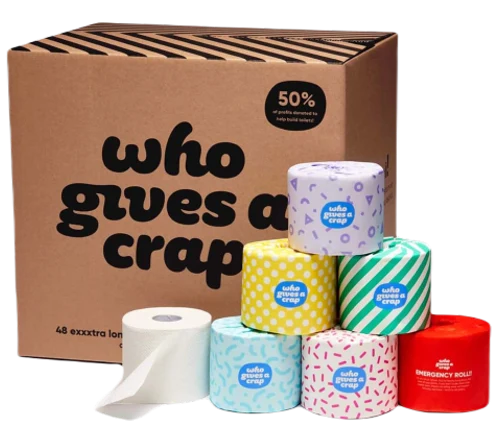In a push for greener living, bamboo toilet paper has been marketed as a more sustainable choice over traditional options made from virgin wood pulp. However, recent findings by the UK-based consumer group Which? reveal that some of these eco-friendly products contain merely 3% bamboo, challenging their environmental benefits.
Eco-Friendly Promise Questioned
Bamboo, unlike typical trees used in toilet paper production, is a rapidly growing grass that thrives even in poor soil conditions, causing less environmental harm when harvested. This has positioned bamboo toilet paper as an environmentally conscious alternative. Yet, Which?’s investigation into the grass fiber composition of popular brands touting “bamboo only” or “100% bamboo” claims has brought surprising results to light.


Investigation Results
The analysis showed that products from Bumboo, Naked Sprout, and Bazoo contained significantly less bamboo than advertised, with percentages as low as 2.7%, 4%, and 26.1% respectively. Instead, these products were mainly composed of virgin hardwoods like eucalyptus and acacia, the latter of which is associated with deforestation issues in South-East Asia. In contrast, only Who Gives a Crap and The Cheeky Panda lived up to their 100% grass fibers promise.
The Murky Side of Paper Pulp Supply
Emily Seymour, of Which? highlighted the opacity within paper pulp supply chains and emphasized the responsibility of companies to ensure their products align with their eco-friendly claims. “Companies that are making green claims – the onus is on them to make sure they are selling what they say they are selling,” she stated.
While bamboo pulp is considered to have a smaller environmental footprint compared to virgin wood pulp, the superiority of recycled wood pulp over both remains evident. However, the ecological advantage of bamboo can be negated if not sourced sustainably, potentially contributing to primary forest deforestation.


Brands Respond to Findings
Faced with these findings, Bumboo, Naked Sprout, and Bazoo have all responded.
Bumboo acknowledged a “fibre error” in its supply chain, affecting a limited amount of stock, and has since implemented regular testing for each production batch.
Bazoo admitted to a contamination issue in a November 2023 batch which they had not previously disclosed but reaffirmed its commitment to 100% bamboo products, enhancing its quality control and testing frequency.
Naked Sprout expressed disappointment with the findings and pointed to its FSC-certified supply chain and adopting a policy of “radical transparency” by making its supply chain data public.
From our perspective, manufacturing issues and supply chain errors do happen. Each of the brands has referred to “errors”. Now, as a consumer, I can understand an error up to 3% which would mean a minimum of 97% bamboo was used. But that’s not what we’re talking about here.
More To Discover
- Panasonic’s Innovative Semi-Transparent Perovskite Solar Panels Look Like Windows or Walls
- Swedish Technique Produces Hydrogen Energy That’s Safe, Efficient, and Metal-Free
- Navigating Eco Certificates: What Are They Telling You (And What Are They Not Saying)
- Plant-Based Ultra-Processed Foods Linked to Heart Disease and Early Death
These companies charge a premium for their ‘sustainable’ bamboo toilet paper and when it’s discovered that their toilet paper is composed of 97.3%, 96%, and 73.9% non-bamboo fibers, well, that’s a very large “error” rate.
If you owed $50,000 to the government in taxes but only paid them 2.7% (Bumboo) and kept $48,650 for yourself… there would be consequences. I imagine telling the IRS that it was merely an “error” wouldn’t cut it.
Ensuring sustainability in eco-friendly products, can be complex, but this type of greenwashing, is why we must demand transparency and accountability in green marketing.


















